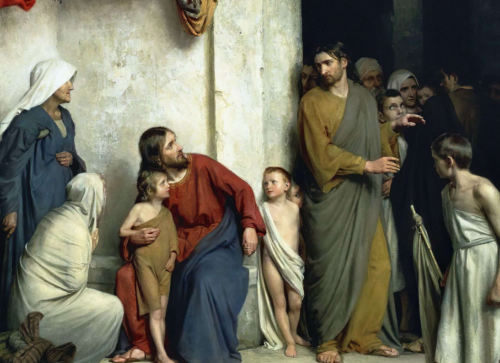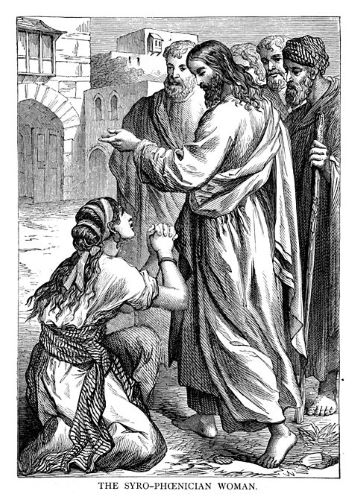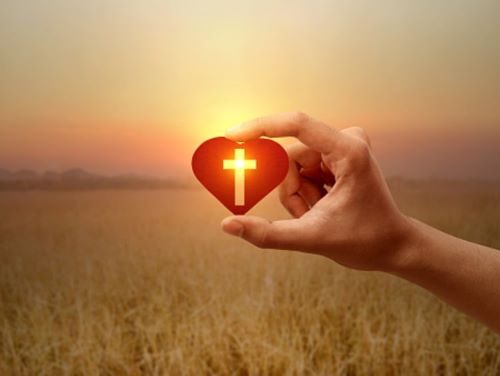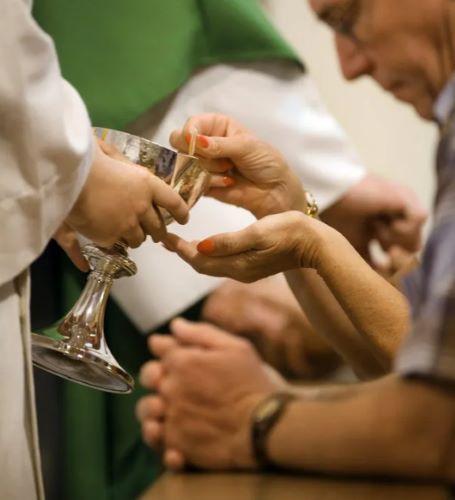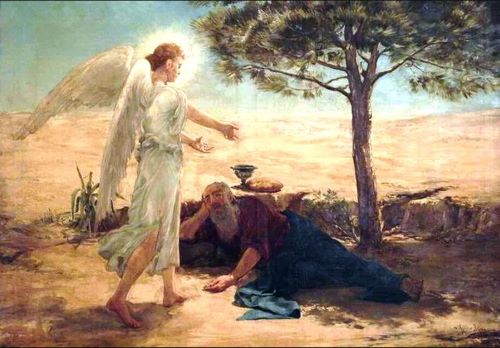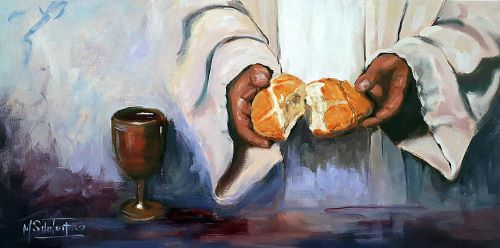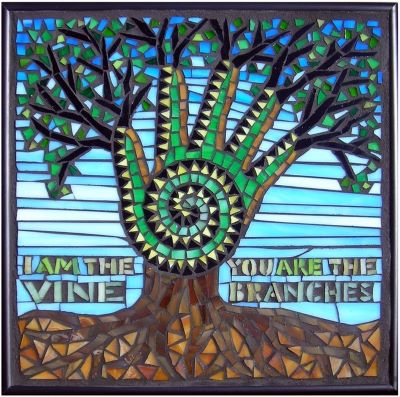
Easter 5
Year B
Acts 8:26-40
Psalm 22:24-30
1 John 4:7-21
John 15:1-8
May the words of my mouth O God… speak your truth…
The Lutheran and Anglican calendars of saints include people like Perpetua and Felicity… Teresa of Avila… Gregory the Great… and others who promoted the faith… there are also those who have healed the Church from heresies or schisms… people who are called Doctors of the Church… people like John of the Cross… Thomas Aquinas… Catherine of Sienna… and St. Ambrose…
These people… along with the Gospel writers… the disciples… and the apostles… didn’t heal with the medical equipment or knowledge we have today… they didn’t have the technology to peer into the far reaches of the cosmos… or into subatomic and quantum realms… but they were still scientists… of the heart… they understood that the heart is an organ of perception… and with their hearts they could discern hundreds of years ago… what modern science is beginning to reveal to us now… that what hurts or heals one of us… hurts or heals all of us… that we are all connected… with creation itself… and with one another…
The Epistle tells about how Philip was directed by an angel to a place where he connected with the Ethiopian eunuch… whose name… tradition tells us was Indich… and he is reading a passage from Isaiah about someone who felt humiliated because justice was denied… he was coming back from Jerusalem where he worshipped… he was a devout man… but Jewish law would have kept him from the Assembly of the Lord because of his deformity… and he probably couldn’t get any closer to the Holy of Holies than the Court of the Gentiles… and like the man in Isaiah… he felt the humiliating sting of injustice too… but here… he invites Philip… includes Philip… and asks him to guide him… and Philip proclaimed the good news…
Now according to the Law of Moses… Philip ought to have seen the Ethiopian as an outcast… as someone unable to receive all of God’s blessings… and the Gospel… but somehow the barriers came down… they experienced connection… and Philip baptized him…
Episcopal Priest Cynthia Bourgeault explains that our brains help us make sense of the world by perceiving through differentiation… dividing our experience into subject and object… inside and outside… light and dark… right and wrong… good and bad… in other words… what we know… we know in terms of contrast… But… she writes… the heart has a different way of perceiving. Rather than dividing and conquering… it simply connects everything with a seamless and indivisible reality through a whole different way of organizing the information field… She writes that… in the wisdom tradition… the heart is primarily an organ of spiritual perception… the heart picks up reality in a much deeper and more integral way than our poor Cartesian minds can even begin to imagine…
So Philip experienced a connection here [heart]… not here [head]… which allowed him to transcend the letter of the Mosaic Law and follow the spirit of the Gospel… it’s one way to look at the distillation of the law… from all 613 laws that had to be kept track of here [head]… to the two great commandments here [heart]…
Today’s Epistle and Gospel are connected and interwoven… like branches and vines… this passage from 1 John uses the word “love” twenty-six times… there are themes of mutual love… mutual indwelling… and mutual abiding … we abide in God and God abides in us… and those who abide in love abide in God… and the Epistle reminds us that this love and mutual abiding cast out fear… the fear that we’re unlovable or that we’re alone… and the too-many-to-count things that arise out of that fear…
And today’s Gospel helps us visualize this inter-relationship… ] in a vine… branches are almost indistinguishable from each other… it’s a challenge to determine where one branch stops and another starts… and this image is the image of community… a community which doesn’t use the head to make distinctions or lift up free-standing individuals… but a community whose branches encircle each other… branches whose fruitfulness depend on the seamless connection of their hearts to the vine… branches that are rooted in and draw their nourishment… and love… from the self-emptying of God in Christ… just as Mary said at the Annunciation… Let it be with me according to Your word… Jesus gave his self-emptying Yes to God in the Garden at Gethsemane…
And Rev. Bourgeault writes… Even with death waiting in the wings… Jesus will allow no separation between God and humans… no separation between humans and humans… because the sap flowing through everything is love itself. In image after image he tries to impart to the disciples his assurance that they can never be cut off from that love… because their very beings are rooted in it… that’s why the Epistle reminds us that those who don’t love a brother or sister whom they do see… can’t love God whom they don’t see…
This metaphor of the vine also implies a radically new model for the church and for society… as the description of a vine and its branches suggests… no branch has pride of place… no one branch can say that it’s better than any other… and can judge the others… or that it deserves more benefits… or that it’s less accountable to the other branches… it’s the vine grower who judges and does the pruning and the cutting back… its a model that says we’re all in this together… we’re all connected… and we need to look out for each other… if our church and society were to shape themselves according to this Johannine metaphor… they would be communities in which decisions about power and governance would be made in light of the radical… egalitarian love of the vine image… and I won’t be the least bit surprised… if science discovers some day… that the unified field of quantum physics… is the consciousness of love…
The world still needs a lot of healing. It has enough Saints… we’re all Saints… what it needs are more Doctors of the Church… women and men who can make the million-mile journey from here [head] to here [heart]… and who can lay down… give up… some of their own lives… to nourish… and look out for… and protect the lives of others…
As an ending prayer… I’d like to offer part of a poem about love… by Khalil Gibran… from his book The Prophet…
When love beckons to you… follow him…
though his ways are hard and steep.
And when his wings enfold you… yield to him…
though the sword hidden among his pinions may
wound you.
And when he speaks to you believe in him…
though his voice may shatter your dreams…
as the north wind lays waste the garden.
Love has no other desire but to fulfill itself.
But if you love and must needs have desires… let these be
your desires:
To melt and be like a running brook that sings its melody
to the night…
To know the pain of too much tenderness…
To be wounded by your own understanding of love…
and to bleed willingly and joyfully.
Amen.

